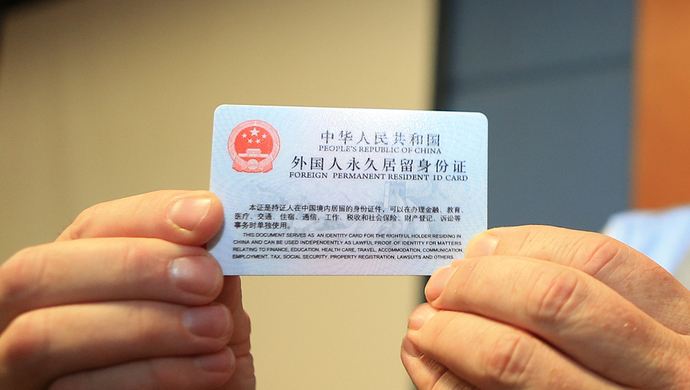

Being between jobs in another country is a stressful experience. You may need to find a job right now in order to stay in the country or you may be waiting for your contract to start and are running out of cash.
I have been there. When I moved from Ganzhou to Beijing, I was between jobs for a few months and was about to run out of money completely. I was staying at a hostel in Beijing and going to a local coffee shop every day to look for a job opportunity to tide me over until the start of my contract at an international school in Beijing.
If you’re in a situation like the one I was in, you need to stack the odds in your favor so that you land a job before the clock runs out and you’re completely broke, forced to leave the country, or stuck in a visa mess. You’ll want to maneuver skillfully through the application process and avoid some of these common pitfalls when applying for jobs in China:
- Reply promptly
Schools in China (and even schools here in the USA) tend to wait until the last second to fill a teaching position. This happens year-round, whether it’s in preparation for a new school year, in anticipation of a teacher leaving, or in an emergency where a teacher has left their post. If you’re in a situation where you’re looking for a job and you need to start work immediately, pay close attention to your email and messaging notifications!
I understand it can be exhausting to watch your email inbox all day long, and that some people don’t like their phone buzzing constantly. In these situations, you’re probably not the only teacher the school is talking to, and if you respond just minutes after another eager candidate, you may be out of a job opportunity. Remember that many of these schools are in a hiring panic, so turn on your push notifications for your email inbox and all messaging apps. Replying quickly also shows the school you’re eager to hear back from them and genuinely interested in the job. The school will likely offer you a job if you’re quick to reply, even hiring you over a more qualified but less responsive candidate.
2. Organize and properly name your document files
As a recruiter, this one drives me wild. Your resume filename should have your name in it, the word ‘CV’ or ‘resume’ and possibly also the date, like so: ‘Ted Solanek CV 2019-6-18’. It makes everything a lot easier for recruitment agents and hiring managers. You do not want the person who is deciding the fate of your application to lose your resume in a pile of files named “myRes.pdf” or “updatedCV.doc.” If they have trouble locating your resume among the hundreds or thousands of CVs on their computer, they may move on to another candidate.
If you have a lot of documents that you’d like to include with your application, you can put them together in a .zip file. Just be sure to put your name on each file so the hiring manager can organize the information easily. No one wants to rename your files for you.
3. Put your best foot forward
Much like in our previous article about acing your online interviews, you need to put your best professional foot forward. Be on time for interviews, speak or write professionally when you’re communicating with hiring managers, dress appropriately, and respond promptly. Do not show up late to online or in-person interviews, it shows that you probably won’t be on time for class. Do not use instant messaging shorthand such as “I am interested in ur teaching job” or “I can interview 2moro” in your emails or messages. Unless you’re a foreign language teacher, you’re going to be teaching in English - do not cause them to think you’re unable to use correct English.
I know of candidates who have lit a cigarette during an online interview or lost out on a job opportunity because they either responded unprofessionally or took far too long to respond. Navigate the application process carefully. It may seem like common sense, but when you have so much riding on a job application, there is no room for error.
4. Negotiate, but don’t push it too far
I understand that you may be an experienced teacher who deserves the highest available salary, but sometimes negotiating can be taken too far and the school will not be able to satisfy your demands. You may need to settle for something that is a little less than you demand. I’m not saying you should be spineless and accept a salary that is far below your worth, but you need to be cautious in your negotiation tactics. Try not to be rude or pompous and listen carefully to their responses to your requests for a higher salary.
I have seen teachers price themselves out of the market, then come back to me in desperation, suddenly willing to take anything they can get, because they only had a few days left on their visa. If a school is offering a job with a job description that fits your criteria, but the benefits are a little shy of what you desire, talk to the school respectfully and make reasonable requests. If you’re respectful in your interactions with them, they will try to meet your demands. If you’re rude, conceited, and expect a salary that is impossible for them to offer, they will give that job to someone else.
5. Communicate!
Our final tip today is very important. After you’ve applied, follow up with the school or company to check on the status of your application. The people in the HR office may be busy and forget to continue working on your application. If the school is doing a reference check, contact your references and let them know that they will soon be contacted. If you sent an email with important documents, verify that the school has received that email. You should take as much of this process into your own hands as you can.
Once you have secured an offer, stay on top of your visa process. If you’re hired as a teacher who is already in China, the school and the visa officials do not have as much on the line as you do. One document slip up, one failure to follow up, or one overly delayed response could land you in a situation where you have to pay for a ticket out of the country. Even worse, the school may need to forgo your employment due to their need for a teacher at a very specific time.
Going from one employer to another, especially when you’re in another country and have limited time to find a new position, can be nerve wracking. We are here to help! If you’re looking to switch jobs, don’t wait until the last moment to begin your application process. Reach out to me at ted@foreignhr.com and I’ll help you find a position that works for you.
(By: Ted Salonek)









 京公网安备 11011202001511号
京公网安备 11011202001511号